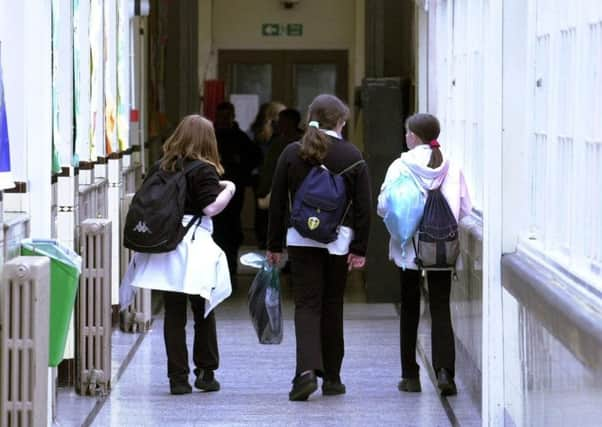Yorkshire council one of few to pass grammar school '˜sense' test


The Education Policy Institute tested areas against four criteria, which it called “consistent” with the principles laid out in the Government’s “schools that work for everyone” consultation.
The institute looked for local authorities made up of a significant number of areas where new or expanded grammar schools would be and where they would not be to the detriment of pupils who do not attend the school.
Advertisement
Hide AdAdvertisement
Hide AdThe study also analysed data to see if grammar schools would undermine existing high performing non-selective schools and identified areas in high demand from parents and whether they have enough pupils attending within a reasonable travel distance.
The education think-tank studied England’s 152 local authorities to find which ones would fill the four criteria, and found only six fit the bill. North Yorkshire was one of the authorities, as well as Solihull, Essex, Dorset, Northamptonshire and North Somerset.
The report concluded it would be hard for the Government to find suitable areas for new grammar schools, and added: “Expanding existing grammar schools is likely in a majority of such areas to reduce the average attainment of disadvantaged pupils and is therefore unlikely to improve social mobility.”
The think tank added: “A more promising approach in the most disadvantaged and low attaining areas may therefore be to focus on increasing the quality of existing non-selective school places.”
Advertisement
Hide AdAdvertisement
Hide AdHowever, the Department for Education (DfE) maintained the report which is published today is “highly speculative”. When outlining her plans for new grammar schools in September, Prime Minister Theresa May claimed that a “true meritocracy” would mean “stretching the most academically able to the very highest standards of excellence”.
A DfE spokesman said: “We held a consultation to help us establish how we can create more good school places for children of all backgrounds by removing the ban on grammar schools and this report is a crude attempt to second guess what that consultation will conclude.
“Independent organisations have recognised the transformative impact grammar schools can have on the lives of disadvantaged young people. Our consultation closes on December 12 and we look forward to considering all the responses.”
The Education Policy Institute’s report comes after a separate study was published last week warning families who are bordering on financial problems are “significantly” less likely to send a child to a grammar school than their wealthier counterparts. The Yorkshire Post reported on Friday that the Sutton Trust’s research raised concerns about the Government’s plan to expand selective education.
Advertisement
Hide AdAdvertisement
Hide AdThe analysis by the educational charity revealed that in areas where 10 per cent or more of pupils attend the state-run selective schools, 15.8 per cent of Year Seven pupils were judged to be from “just about managing” families or JAMs.
In contrast, children from the wealthiest families made up 34.4 per cent of Year Seven students at the schools, the charity found.